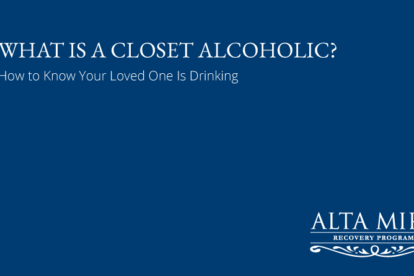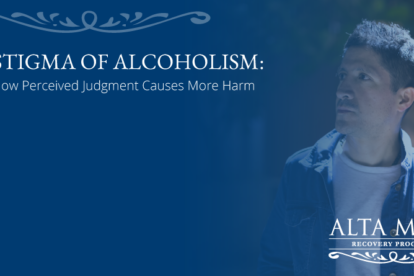How to Get (and Stay) Sober When Your Spouse Drinks

Sobriety isn’t easy—especially if your most challenging triggers are part of your spouse’s everyday routine. Learning to understand and manage your triggers, practicing utilizing healthy conversations as part of your recovery process, and tapping into the strength of sober support networks are all key facets of learning how to stay sober when your spouse drinks. Residential treatment can help with all of these things and pave the road to lasting recovery.
Often, we’ll choose places to eat, museums to see or hikes to take based on how they look. Like the background of a painting, the environment can have a large impact on the capacity of someone with an alcohol use disorder to live successfully with sobriety. And while one may look toward their spouse to be a pivotal and vital picture of support, that loved one may also have a life that involves drinking.
It should come as no surprise then that taking steps toward sobriety while your spouse continues drinking can affect you. How do you maintain your progress toward sobriety while continuing to maintain a healthy and loving relationship with your spouse? The path to sobriety can be daunting—however, proper communication channels and feeling comfortable enough to express when you are feeling concerned or triggered can be instrumental. In particular, being open enough to discuss the possibility of seeking residential treatment away from everyday triggers—including your spouse’s drinking—can give you the space and time you need to build sturdy foundations for long-term sobriety.
Understanding Triggers and Minimizing Their Impact
Whether you are at home and your spouse pours themselves a glass to drink along with a meal, or in a social event where there is some alcohol consumption going on, it is important to understand the experiences which may trigger unhealthy responses. A trigger can be as subtle as someone mentioning a phrase reminiscent of a mindset you had when imbibing, or as direct as witnessing a drink being poured.
While we can’t always control the environments we’re in, we can learn how environmental triggers affect us as well as coping and management strategies that may aid us in settling down from a triggering event.
With a trigger, oftentimes the first sense of having a response will begin either bodily or emotionally: you can feel your pulse shift, or your hands begin moving a type of way, or you begin fixating on an object or thought. In these instances, some of the best strategies to employ for resolving a trigger can be lifestyle changes and choices to leave a situation: instead of fixating, perhaps go for a walk to escape the triggering situation or instead of staying within an element of a function that is triggering, offer to help out with an area that perhaps won’t trigger you for example, offering to help cook or clean instead of staying within the main room of a party.
While productivity and distractions can aid in the interim periods when you’re feeling particularly triggered, it is also worth exploring the types of lifestyle activities you might replace unhealthy habits with so as to manage your addiction triggers. Beyond lifestyle changes, though, rehabilitation and professional treatment settings can offer the change of lifestyle that not only encourages but also provides the types of environments necessary for growth, health, and lasting recovery from an alcohol use disorder.
Learning and Utilizing Healthy Conversations as Part of Your Recovery
After coming to an understanding of how your triggers function and how to handle yourself when feeling a response to a particular situation, it is also helpful to consider your communication methods. Alcohol addiction and addiction recovery are difficult periods of a person’s life. With such difficulties, it is more important than ever to be able to express and communicate trouble or grief as well as affirmation and need for support.
A great way to learn and practice having these conversations comes in the form of attending residential therapy. Being able to find the type of therapy and rehab that works best for you will encourage you to have the types of conversations necessary to build and maintain healthy and stable conversations with those you care about.
The first step in these conversations is learning the power of ‘why?’ and ‘how?’ While these two questions might seem overly simplistic, being able to have a discussion with your spouse and honestly say, ‘When you did this action, it triggered me in this way,’ is one of the most powerful ways of alleviating stressors and unhealthy schisms in your relationship.
With these conversations, though, it is also important to keep in mind: living with someone with or recovering from alcohol use disorder is an incredibly trying period. Do not ignore your spouse’s concerns, and try to maintain a healthy, stable dialogue with your spouse throughout any trials you may face in your recovery process.
Hope is Just a Phone Call Away
866-922-1350Sober Support Networks
Sometimes, no matter the trigger management strategies you employ and conversations you have with your spouse, their behavior continues and you may feel unable to find a safe space or point of solace in your recovery. Whether you have acquaintances from rehab meetings or a treatment program, or have friends who are successfully sober, this may be the time for you to reach out to people who can become your sober support network. This network can be both a safety net and a source of strength, helping you to focus on your recovery without requiring your spouse to change their lifestyle or compromise their own emotional needs in order to better support you.
Having others whom you can call on as a sober network is beneficial for myriad reasons:
- Enables space for your spouse to take care of themselves while you work towards healing and recovery
- Gives access to activities and social gatherings that do not involve alcohol and minimize triggers
- Allows for discussions with individuals who can empathize with your recovery process
- You can feel proud for being a positive, supportive part of another’s recovery process on top of your own
There is no shame in utilizing the resources you’ve found within a rehabilitation program, especially when these resources are individuals or groups of people whom you have had the great pleasure of recovering alongside.
The Role of Residential Treatment in the Road to Sobriety
For some, even a loved one’s support and the space and safety of support networks outside of the household may not be sufficient to maintain sobriety. Whether you are struggling to stop drinking or find yourself slipping into a potential relapse, a long-term residential treatment program may be the answer. In an immersive healing environment, supported 24 hours a day, 7 days a week by medical professionals, you can get back to the basics and begin building (or rebuilding) a strong foundation for sustainable recovery away from the triggers and distractions of daily life. At the end of the program, you’ll return to your loved one refreshed, rejuvenated, and with your hope and determination rekindled. And you’ll be armed with the tools you’ll need to manage your cravings and continue down the path of recovery long into the future.
Staying sober isn’t easy—especially if your most challenging triggers are part of your spouse’s everyday routine. But with time, patience, and the benefit of a comprehensive alcohol treatment program tailored to your unique mental health needs and goals, you can loosen the grip of alcohol addiction and learn how to move forward with your life free of its grasp.
Alta Mira offers comprehensive treatment for people struggling with drug and alcohol addiction as well as co-occurring mental health disorders and process addictions. Contact us to learn more about our renowned Bay Area programs and how we can help you or your loved one start the journey toward lasting recovery.






